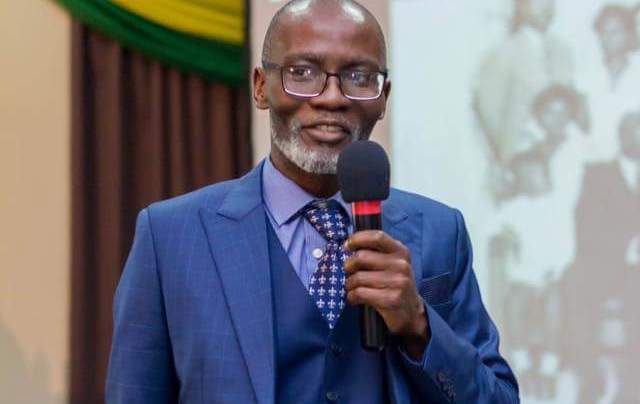A definite way to mitigate the cascading effect of increasing oil prices is a railway system and the promotion of transport means that do not depend on fossil fuels; a leading member of the governing NPP, Gabby Otchere-Darko, has said.
A switch to these methods is likely to reduce the high demand for crude products, driving prices down.
Trains use diesel, electric, and steam power for fuel. Steam was utilized in the 19 century; however, electric and diesel power grew in prominence in the 20th century.
In modern times, hydrogen-powered trains have emerged, which can run for 600 miles on a single tank of fuel – on par with the distances that traditional trains achieve on a tank of diesel.
Technology advancement has also resulted in cost effective and efficient operations of diesel locomotives that require less manpower and less fuel consumption.
From electric cars, propane vehicles, natural gas-powered buses and trucks that run on biodiesel, the wide alternatives have helped reduce consumers’ fuel costs, minimize pollution and increase the energy security of some advanced countries.
Ghana does not have a well-developed railway transport system, so residents depend heavily on petrol and diesel vehicles to commute.
Any increments in fuel prices impact transportation costs with a ripple effect on the prices of goods and services.
The impact is the rise in the cost of living, which places a huge financial burden on Ghanaians as salaries remain unchanged.
Mr Darko has therefore suggested a critical look at the railway sector and its development to address the current challenges.
“In Ghana, because we don’t have trains & other forms of non-fossil fuel driven means, the link between high crude oil prices in a deregulated space, with ex-pump price & food & other goods are too direct. Railways are one big way of reducing the domino impact of high oil prices,” the former Executive Director of the Danquah Institute tweeted.
In Ghana, because we don’t have trains & other forms of non-fossil fuel driven means, the link between high crude oil prices in a deregulated space, with ex-pump price & food & other goods are too direct. Railways is one big way of reducing the dominoe impact from high oil prices.
— Gabby Otchere-Darko (@GabbyDarko) May 30, 2022
As part of its efforts to resurrect the sector, the Akufo-Addo administration has embarked on rail projects.
Earlier this month, the government announced the resumption of scheduled rides on the Accra-Tema and Accra-Nsawam railway lines.
Later, the government cancelled the drive, stating that some challenges were to be resolved before getting the rail transport service going.
According to the Ghana Railway Development Authority (GRDA), the key to those challenges was the conversion of all narrow gauges into standard gauges and the procurement of new coaches to run the lines to make the service efficient.
Last year, the Minister of Railways Development, John Peter Amewu, announced that work was progressing on the Tema – Mpakadan railway.
Mr. Amewu told Parliament while answering a question posed by Nsawam Adoagyiri lawmaker Mr. Frank Annoh-Dompreh that the rail construction work was progressing.
The Tema-Mpakadan rail line is part of the 1,000km Ghana-Burkina Faso Railway Interconnectivity Project which will link Ghana from Tema to Burkina Faso’s capital Ouagadougou.
The two countries signed a Memorandum of Understanding (MoU) in January 2017 in Ouagadougou to kick-start the project.
According to the plan, some 800km of the railway line will be in Ghana’s territory, while the remaining 200km will be on Burkinabe soil.



